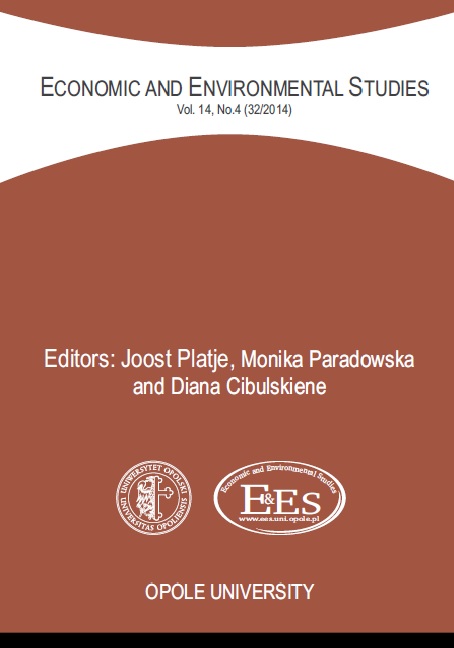Land use change as an opportunity to decrease the consequences of extreme weather events: a case study of the Tisza Valley in Hungary
Land use change as an opportunity to decrease the consequences of extreme weather events: a case study of the Tisza Valley in Hungary
Author(s): Nikolett Eszlári, Zsuzsanna Marjainé SzerényiContributor(s): Monika Paradowska (Editor), Diana Cibulskienė (Editor), Johannes Platje (Editor), Joost Platje (Editor), Joost (Johannes) Platje (Editor)
Subject(s): Economy, Energy and Environmental Studies
Published by: Uniwersytet Opolski
Keywords: land-use change; cost-benefit analysis; ecosystem services of wetlands; contingent valuation; benefit transfer
Summary/Abstract: There are many reasons that the losses caused by extreme weather events are escalating year by year in Hungary. They include Hungary’s geographical characteristics, climate change, river regulation and the expansion of cultivated land. Changes in land use have hugely damaged natural capital, primarily decreasing the area of wetland. Wetlands are multiple-value resources and just one of their functions in the ecosystem is flood regulation. This type of habitat is able to store excess water which can be used in times of drought. At the same time, appropriate land-use (such as increasing the area of wetlands) can help address extreme weather events and increase the amount of natural capital. During the research this paper describes, the social impacts of different kinds of land-use were examined using cost-benefit analysis, contingent valuation and the benefit transfer method. These methods are able to assist with environmentally sustainable decision making as they can be used to show the social preferences for different types of habitats.
Journal: Economic and Environmental Studies
- Issue Year: 14/2014
- Issue No: 4 (32)
- Page Range: 389-412
- Page Count: 24
- Language: English

